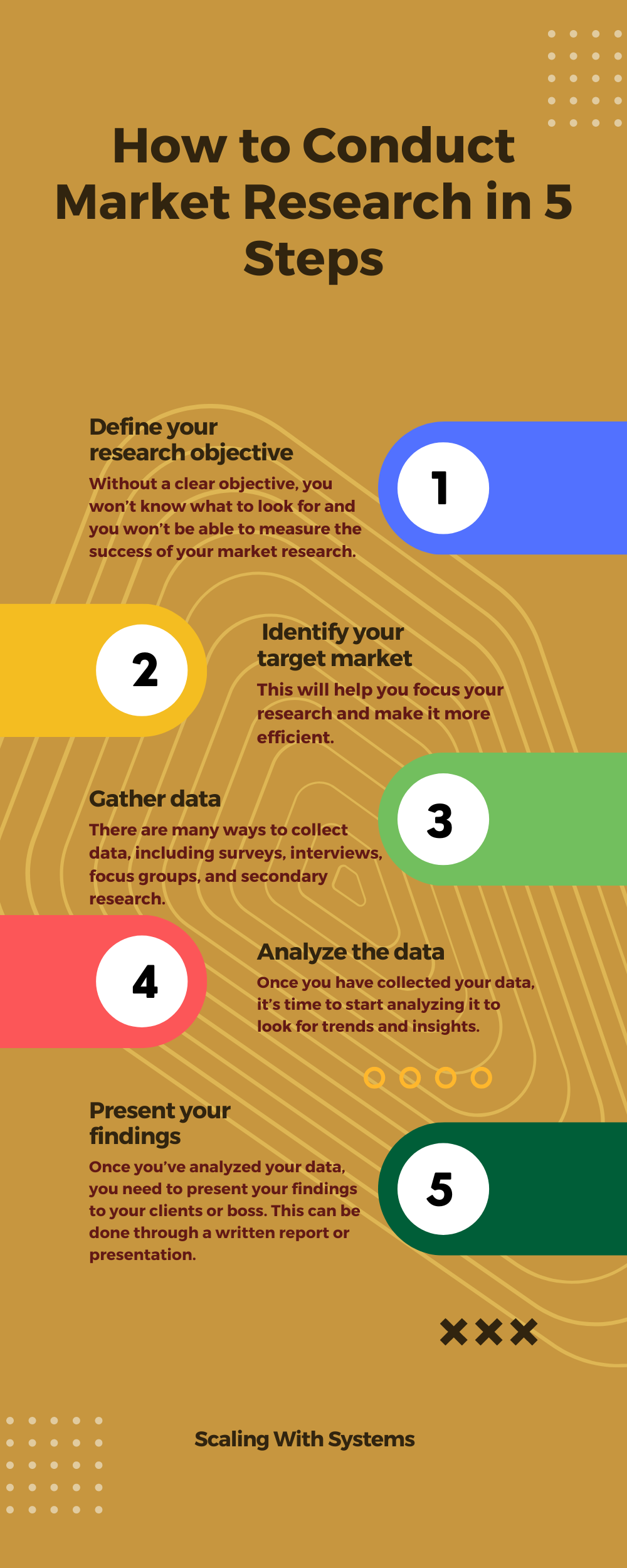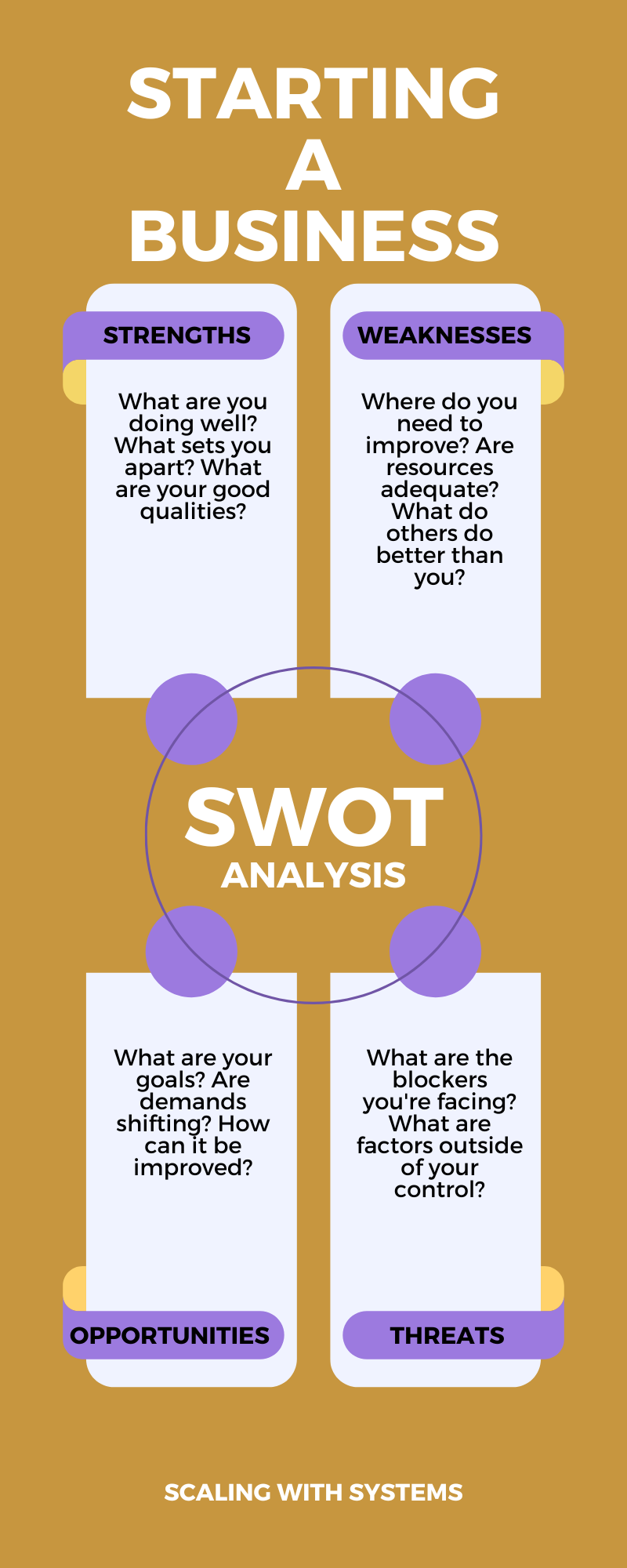Want to escape the 9-to-5 grind and build a steady income stream? Learn how to start a business and be in control of your work life.
The idea of being your own boss and enjoying the freedom that comes with it is pretty exciting.
But here’s the catch: Starting a business isn’t a piece of cake; it requires perseverance and grit.
That’s why, although 43% of Americans want to start a business, 47% work for someone else.
Building a business might be the right path for you if you have a burning passion for your craft and derive excitement from making difficult choices.
But remember: Patience is the key.
Despite being committed to their dreams and patient enough, most aspiring entrepreneurs don’t know where to begin.
In this article, you’ll learn how to start a business and where to begin. We’ll also share some super-actionable business tips to get you up and running and grow your business exponentially.
Start With The Right Business Idea
Starting a business can be easier than most people think. The key to success is having a solid idea and offering a product or service that meets your consumers’ needs. That’s the first step to becoming a successful entrepreneur. Give people what they want and need.
Do your research before taking the leap, as 35% of business startups fail because they misread their consumers’ needs.
If you have a business idea in mind, that’s great. But if you need some guidance, consider these easy startup options for inspiration:
- Business Consulting
- Handyman
- Tax preparation and bookkeeping
- Freelance Developer
- Landscaping
- Financial planning
- Photography
- Life/ Career Coach
- Bed and Breakfast Owner
- Clothing Boutique Owner
- Jewelry making
- Event planning
- Copywriting services
- Personal training
- Music Lessons
- Computer training
- Freelance Graphic design.
Refine Your Business Idea
Before starting your own business, you need to test the waters with your offerings. It’s helpful to gauge the response that people will have to your business offering to see whether it’s geared towards success. Do that by following the steps below:
- Conduct market research: You need to figure out if there’s a need for your product in the market. This involves gathering information about your target audience, industry trends, and competition. That will help you validate your idea and identify any potential roadblocks. Pin it in your mind, as we’ll discuss this in detail later in the article.
- Define your unique value proposition: What edge do you have over your competition? What problem are you solving, and how are you solving it differently? Your unique value proposition should be clear, concise, and compelling.
- Create a prototype: A prototype is a stripped-down version of your product or service, which you can test and refine based on customer feedback.
Say you’re starting a food business. Create a sample recipe for your product and ask friends, family, or even strangers to try it. Take note of their feedback—what they liked, what they didn’t like, and what they’d change. This is a great way to refine your product and ensure that it’s something people want.
On the other hand, if you’re starting a consulting or coaching service, you could offer a free trial session. This would allow potential customers to experience the service and get a feel for your offer.
- Get feedback: Ask for honest feedback from people in your target audience to see if your idea resonates with them. This feedback can be valuable in refining your idea and making any necessary adjustments.
- Refine your business idea: Make any necessary changes based on the feedback and market research. Repeat this process as needed until you have a solid, well-defined business idea that you feel confident about moving forward with.

Conduct Market Research
Many budding entrepreneurs are too excited about their offerings when figuring out how to start a business. Being emotionally invested in your product or service is generally good for your business.
But being overly obsessed to the point that you don’t give your competition a second thought might be a bad idea. You want to have a healthy sense of humility to check out what others are doing in the same industry and niche, and learn from what works (and what doesn’t).
Conduct market research to determine where you stand in the market regarding your unique selling proposition (USP). If your research indicates that the market is saturated with products or services similar to yours, consider niching down.
Say you run a digital marketing agency for real estate brokers, and your market is saturated with services like yours. Go after a hyper-targeted group of that market, which in this case might be real estate brokers who live in the transient market.
If you still haven’t figured out what niche you are going after, here’s a great article that explains how to find a profitable niche. Be sure to give it a thorough read.
Here are some ways to conduct your market research:
Primary Research
Primary research is the first step of competitive research when learning how to start a business. To conduct primary research, obtain data directly from potential customers through questionnaires, surveys, or interviews.
Avoid surveying friends and family unless they are your target market, as there may be a difference between those who say they would buy and those who do.
To avoid disappointment, ensure the product aligns with what consumers want based on your research.
Secondary Research
In contrast to primary research, you use existing sources, like census data, to gather information.
Analyze the data to determine what would work best for you in a given market, but be aware that it may not be as detailed as primary research.
Conduct a SWOT Analysis
SWOT (strengths, weaknesses, opportunities, and threats) analysis clearly illustrates the market landscape, including the external and internal factors affecting your business. That’s why carrying out a SWOT analysis is crucial when figuring out how to start a business.
It assesses strengths, weaknesses, opportunities, and threats to determine the potential performance of your product or idea if brought to market.
Make decisions about the future direction of your idea, identifying potential weaknesses and opportunities for improvement compared to competitors.

Write a Business Plan
Put your key plans and strategies in writing to figure out how to start your own business. It cements who you are, what you stand for, your goals, and how you plan to execute them.
One way to do that is by writing a business plan. Creating a business plan will manifest your business idea and give it a more tangible form. It’ll also help you present your business ideas to potential investors.
Here are some important sections that your business plan must have:
- Executive Summary: It’s a concise overview of your business plan. It should go into the details of the main elements. These elements include the problem you aim to solve, the product/service description, the target market, the team, the financials, and the funding requirements (if relevant).
- Products & Services: This key chapter showcases the problem you solve, the solution, competition, competitive advantages, milestones, and metrics.
- Market Analysis: Describe the target market, market growth, and how your business plans to take advantage of industry changes.
- Marketing & Sales: Outline your plans to reach the target market, sell, price, and engage in activities and partnerships.
- Company Organization & Management Team: It should include an overview of the current team, company structure, ownership, and brief bios of key team members.
- Financial Projections: It should showcase detailed financial information. That includes sales and revenue projections, profit and loss statements, balance sheets, and cash flow statements for the first 12 months and the next 3–5 years.
Know Your Finances
Starting a business comes with a cost, and it’s crucial to determine how you will finance these expenses. To ensure the success of your venture, you need to have a solid understanding of your funding options.
You can choose to fund your startup through personal means, or you can opt to secure a loan.

If you’re planning to leave your current job to focus on your business, you need to consider the financial implications.
Do you have enough savings to support yourself until the business starts generating a profit?
Accurately estimating your startup costs is key to avoiding financial pitfalls. 38% of startups fail because they run out of funds before they can turn a profit.
As an entrepreneur, it’s always wise to be conservative in your calculations and overestimate the amount of capital you need. This will help you to weather the ups and downs of an early-stage business and set you up for success.
Break-Even Analysis
When starting a business, entrepreneurs must know the point at which they’ll begin to cover their costs. A break-even analysis can help you with that.
The break-even point is when a business’s revenue equals its costs. There are two ways to calculate your break-even point: by determining the number of units sold or the sales amount in dollars.
The break-even point will determine when you start making a profit. You’re operating at a loss if your revenue is below the break-even point. On the other hand, if it’s higher, you’re making a profit.
Formula to calculate the break-even point in units:
Fixed Costs ÷ (Sales Price per Unit – Variable Costs per Unit)
- Fixed costs: expenses that stay the same, e.g., rent and utilities.
- Sales price per unit: the price a business charges for one product. Variable Costs per Unit: expenses directly tied to producing a product, e.g., materials, labor.
Say you are starting your own business and want to enter the soda industry with a company named “Joe’s Soda.”
Joe’s Soda’s costs for the first month of production are:
- Fixed costs are $1,000.
- Variable costs are $0.30 per can.
- The sales price is $1.00 per can.
Putting these values for the variable in the break-even formula, we’ll get:
Break-Even Point in Units: $1000 ÷ ($1.00 – $0.30) = $2000 ÷ $1.10 = 1429 units
To reach the break-even point, you must sell 1429 cans of the new soda in a month.
Determine Profitability
The profit margin shows a company’s profitability as a percentage of its net income divided by its net sales or revenue. It indicates how much each revenue dollar flows to your bottom line.
Work it out when starting a business to quickly reveal any pricing problems that may create cash flow challenges and threaten the ongoing existence of your company.
The profit margins vary by industry, so it’s crucial to know the standard margins for your industry to determine if you are hitting the right amount.
To calculate the gross profit margin, deduct the cost of goods sold (COGS) from the revenue and divide the result by the revenue. The COGS includes wages and raw materials but does not include overhead or taxes.
Here’s how the formula goes:
Net Profit Margin = (Net Profit / Total Revenue) x 100
Choose Your Legal Business Structure
As a prospective business owner, you must select the appropriate business structure that suits your needs and goals. This is a crucial decision that will have far-reaching implications.
From tax filing to personal liability, your choice will impact many aspects of your business operations, making it essential for you to learn how to start a company and choose its structure.
- Sole Proprietorship: A sole proprietorship may be the right option if you plan to start your own business independently and bear sole responsibility for debts and obligations. Be aware that this structure can directly impact your personal credit.
- Partnership: A partnership involves two or more individuals who share personal liability as business owners. This structure can provide valuable support in terms of complementary skills and resources to help grow your business.
- Corporation: When starting a business, to separate your personal liability from that of your company, consider either an S corporation or a C corporation. Weigh the pros and cons of each according to your preferences.
This legal structure recognizes your business as a separate entity with the ability to own property, enter into contracts, pay taxes, and more.
C corporations are particularly suited for businesses that plan to go public or secure funding from venture capitalists.
- Limited Liability Company (LLC): The LLC is a popular option for small businesses due to its unique hybrid structure that offers the legal protection of a corporation and the tax benefits of a partnership.
The choice of business structure should align with your current needs and future goals. Thoroughly understand the various options available and seek professional advice if needed.
Make an informed decision to ensure your business is set up for success from the outset.
Small businesses either go with a sole proprietorship or an LLC. If you’re not sure which to go with, here’s a great article that compares sole proprietorship and LLC in detail.
Register Your Business
Once you’ve followed through with all of the steps on how to start your own business, it’s time to make it official by registering your business. For that, you’ll need to obtain the required licenses.
This process involves registering with various federal, state, and local governments and preparing crucial documents.
18% of startups fail because they face regulatory/legal challenges. So, get your paperwork straight before you start your own business.
Here’s what you need to know:
Articles of Incorporation & Operating Agreements
When starting a business, you must register with the government to be recognized as a legitimate business entity. This involves creating articles of incorporation documents for corporations, which outline your business name, purpose, structure, stock details, and other relevant information. On the other hand, LLCs may need to draft an operating agreement.
Doing Business As (DBA)
Say you don’t have articles of incorporation or an operating agreement. In that case, you’ll need to register your business name. That can be your legal name, a fictitious DBA name for sole proprietorships, or a unique company name. To further protect your business name, consider trademarking it.
Most states require you to obtain a DBA, which you can do by applying for a DBA certificate if you’re operating as a general partnership or sole proprietorship under a fictitious name.
Contact or visit your local county clerk’s office for specific requirements and fees, which usually include a registration fee.
Employer Identification Number (EIN)
You may need to obtain an EIN from the IRS when starting a business and registering it.
While this is not mandatory for sole proprietorships with no employees, getting one to separate your personal and business taxes or to prepare for future hires is advisable.
The IRS provides a checklist to help determine your EIN needs, and you can complete this process for free online.
Income Tax Forms
You must file certain forms to fulfill your federal and state tax obligations. The forms you’ll need will depend on your business structure.
Check your state’s website for information on local and state-specific tax obligations.
Federal, State, & Local Licenses & Permits
Getting additional federal, state, or local licenses and permits to operate might be one of the first steps to starting a business for some owners.
To obtain a business license, start by visiting your local city hall. From there, use the SBA’s database to search for state and business-specific licensing requirements.
Trades and independent contractors may also be required to carry professional licenses.
People with a commercial driver’s license (CDL) can operate particular vehicles, such as buses, tank trucks, and tractor-trailers.
CDLs are divided into three classes: Class A, B, and C.
Check with your city and state to determine if you need a seller’s permit. This permit authorizes you to collect sales tax from customers and goes by various names, including resale permit, state tax ID number, reseller number, and certificate of authority.
Remember that requirements and names vary from state to state, and you can register for a seller’s permit through the relevant state government website.
How To Make A Business Grow (Long-Term)
As an entrepreneur, your launch and initial sales are just the starting point in your journey. Continuous growth is essential to ensure your business’s long-term success and profitability. This requires a significant investment of time and effort, but the rewards are well worth it.

To drive growth, collaborate with established players in your industry. Reach out to other companies and offer a product sample or service in exchange for promotion. That will help you leverage the established networks of your industry peers.
Partner with a charity organization, as this can help increase your brand exposure and demonstrate your commitment to social responsibility.
While planning is vital in starting a business, it is essential to remember that no plan is foolproof. The business landscape constantly evolves, and flexibility and adaptability are crucial to running a successful venture. To that end, stay nimble and be ready to pivot your strategies as circumstances change.
Check out this article that explains how to grow your business in detail.
How To Start A Business: FAQs
What do you need to start a business?
- Start with the right business idea.
- Refine your business idea.
- Write a business plan.
- Know your finances.
- Choose your legal business structure.
- Register your business.
- Launch your business.
What are the 4 main elements of starting a business?
The four elements of a successful business are:
- Product: Simple, clear, and honest offerings that solve specific problems.
- Market: Understand and cater to the market through demand proof.
- Money: Adequate funding to sustain the startup.
- People: Relentless and loyal employees to drive the business forward.
Can you start a business with no knowledge?
Yes, you can. Starting a business is possible without prior experience. Regardless of previous industry knowledge, you can become an entrepreneur at any time and place.
Wrapping Up: How To Start A Business
Starting a business is daunting. But the payoff can be huge for the ones that work hard and are determined to put in the time and effort required to turn their dreams into a reality.
There’ll be ups and downs along the way. You’ll weather through such conditions if you have firm foundations.
Do your research and create a solid business plan that you can use as a roadmap for success, and more importantly, don’t be afraid to pivot along the way.
If you’re looking to boost your business, our expert guidance can make all the difference.
Our tested client acquisition strategies will help streamline your operations, attract the right leads, and give you more time to focus on what really matters.
Imagine a future where your business runs like a well-oiled machine, grows steadily, and leaves you feeling fulfilled. Book a free consultation call to learn more.



